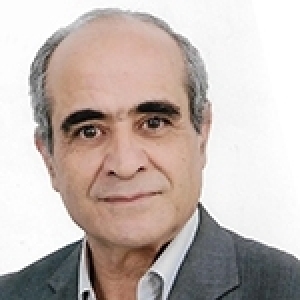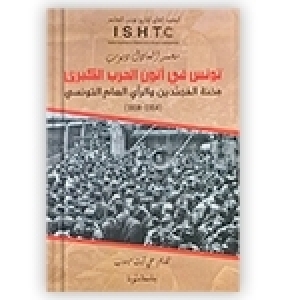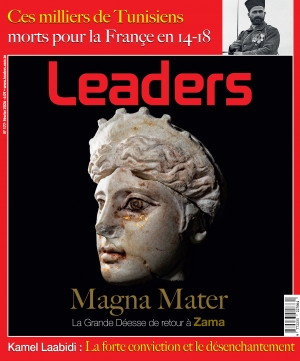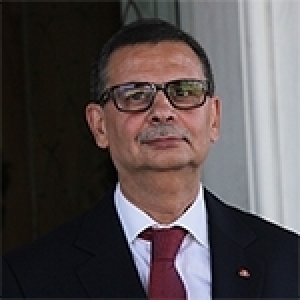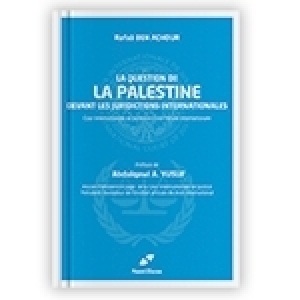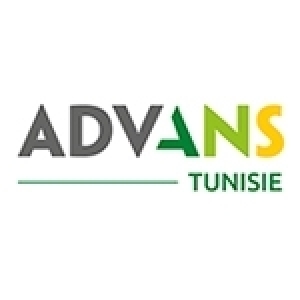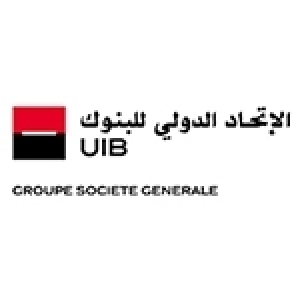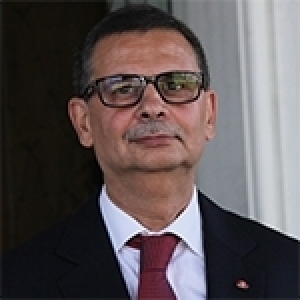Les quatre réformes prioritaires dont l'économie tunisienne a besoin selon la ministre américaine du commerce
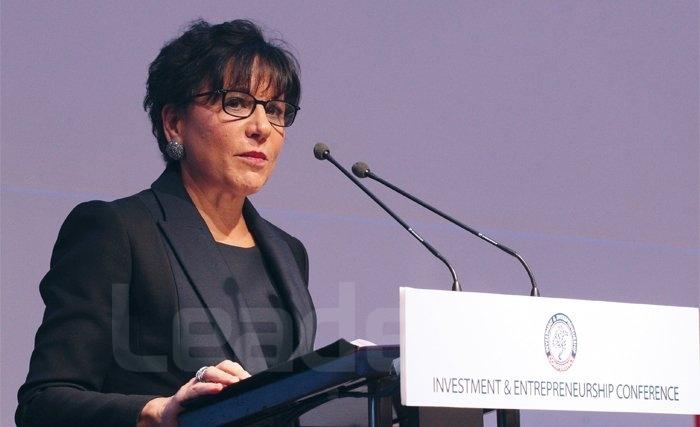
Intervenant lors des travaux de la conférence sur l’investissement et le partenariat qui se tient à Tunis, la ministre américaine du Commerce, Penny Prtizker a passé en revue les quatre grandes réformes dont l’économie tunisienne a selon elle un besoin pressant pour se développer :
- le code tunisien d’investissement est un labyrinthe byzantin - un héritage d'une autre époque et un régime fermé. La rationalisation, la simplification et la clarification du code des investissements inciteront à la création d'entreprises, faciliteront la croissance du secteur privé, favoriseront la compétitivité et enverront un signal fort aux investisseurs locaux et mondiaux pour investir dans le pays,
- le système bancaire de la Tunisie est pénalisé par un nombre excessif de prêts non performants, un autre héritage de la période prérévolutionnaire. Un système bancaire plus souple, tourné vers l’avenir est devenu primordial pour appuyer la création de nouvelles entreprises viables. Un effort de restructuration du secteur bancaire permettra de recapitaliser les banques publiques et favorisera aussi le développement des autres sources de financement. Cette réforme devra inclure une loi sur la faillite qui protège les preneurs de risques et permet de réduire au minimum les effets des faillites de manière à créer un environnement favorable à l’entrepreneuriat.
- le système fiscal et douanier actuel de la Tunisie est imprévisible, inefficace, et beaucoup trop discrétionnaire. La Tunisie a besoin d'une structure fiscale et douanière transparente, fiable et moderne avec des tranches d'imposition équitables qui intègrent l'économie informelle dans l'ensemble du marché avec une vérification des comptes fondée sur le risque et indépendante des interférences politiques et autres et des procédures douanières efficaces. Ceci stimulera le commerce et les exportations et empêchera l'application discrétionnaire des règles.
- enfin, la Tunisie devra instituer des lois sur les partenariats public-privé qui offriront aux entreprises nationales et étrangères la transparence et la prévisibilité dont les entreprises nationales et étrangères qui comptent investir ont besoin, réduiront les formalités administratives pour les investisseurs internationaux et attireront des capitaux privés pour des projets nécessaires d'infrastructure.
Le discours intégral de la ministre américaine du Commerce
Thank you, Prime Minister Essid, for your remarks.
When he was sworn into office, President Caid Essebsi pledged action to “realize the promises of the revolution: dignity, employment, health, and regional equality.”
Led by the Prime Minister, I believe that Tunisia’s new government is prepared to take the difficult steps needed to fulfill that promise.
I want to thank our hosts today, former U.S. Secretary of State Madeline Albright who is chair of Partners for a New Beginning, their Tunisian affiliate PNB-NAPEO, and the Tunisian American Chamber of Commerce.
I also want to thank the many business, civil society, and government leaders from Tunisia, the Middle East and North Africa, the United States, and around the world for coming together for this Investment and Entrepreneurship Conference.
Tunisia is the ideal host for this conference, which aims to explore the economic potential of North Africa.
Four years ago, a new era began with a protest here in Tunis, launching a revolution and capturing the attention of the world.
In America, we all know the story of Mohamed Bouazizi, the young Tunisian vendor, who was: frustrated by a lack of opportunity for business owners, workers, and entrepreneurs; held back by a tradition of rampant corruption; and treated with contempt by political leaders more interested in enriching themselves than in serving their people.
His single act of desperation became the first chapter in a story of self-determination. Thousands of people took to the streets, fed up with the tyranny of a government that denied its own citizens basic dignity, respect, and economic opportunity.
This reminds me of the humble beginnings of the United States, when a small band of patriots inspired a people to take hold of their own destiny and to rise up against the forces of tyranny.
Our Founders signed their names to a Declaration of Independence that asserted certain “unalienable rights”– to “life, liberty, and the pursuit of happiness.”
Those rights reflect a demand for both fair political representation and economic liberty.
Four years ago, the people of Tunisia called for and, ultimately, secured these same rights.
Today, we cannot forget that the roots of your extraordinary political upheaval were about economic freedom.
Indeed, Mohamed Bouazizi’s demands were simple: the chance to earn a good living; the opportunity to start a business; the need to put food on the table and support a family.
These aspirations are not unique to Tunisia. They echo across nations, ethnicities, religions, and generations, which is why, in 2011, the entire world watched with awe at the courage of Tunisia’s people to speak out.
Last year, the world was watching once more, as Tunisians came together to usher in a new, democratic government.
Now, the world is still watching to see what you do next to turn your political victory into an economic triumph.
Since the days of the revolution, Tunisia has undergone a historic transition from dictatorship to democracy. Your leaders ratified a progressive constitution. Your people voted in free and fair elections.
You inaugurated your first democratically-elected president. Your legislators formed a government based on consensus.
This political progress has been rapid and remarkable, inspiring and necessary. A stable, functioning democracy is a fundamental backbone of a strong economy and a healthy society.
However, this political shift is not enough. The next step –economic reform– is essential if the revolution is to fulfill the ambitions of the Tunisian people.
Like the political process, the road ahead will be challenging. But you are fortunate. Tunisia possesses enormous assets that make a brighter future possible. Your broad, inclusive coalition government bespeaks Tunisia’s political stability. Your location, culture, and language place Tunisia as a vital link between Europe and Africa.
Your country’s natural beauty makes Tunisia a magnet for a blossoming and revitalized tourism industry. And your well-educated and youthful population is a reservoir of talent.
There is not a moment to waste to build on these assets.
Nearly half of Tunisians are under 24 years old.
Tunisians between ages 15 and 30 comprise one-third of the labor force, but three-quarters of the unemployed.
The urgency of this challenge cannot be overstated.
We know from experience that economic stagnation and hopelessness can sow the seeds of radicalization– and that economic prosperity can form the roots of moderation and progress.
And we know that providing economic opportunity and hope for young people is the best deterrent to the rise of violent extremism and to the recruitment efforts of terrorist groups like ISIL.
The time is now to ensure all Tunisians, young and old, get a fair shot at economic success.
Your leaders recognize that tapping into Tunisia’s potential requires tough decisions and complicated reforms.
Over the past four years, Tunisia’s governments have taken steps to enhance the flow of capital to small and medium-sized enterprises, to advance the legal rights of borrowers and lenders; and to improve protections for investors.
But as someone who spent 27 years in the private sector, I know that additional reforms are critical to encourage investment and to create an environment for widespread job creation.
Let me highlight four issues for consideration.
First, Tunisia’s investment code is a byzantine maze –a legacy of an earlier era and a closed regime.
Streamlining, simplifying, and clarifying the investment code will incentivize business formation; facilitate more private sector growth and competition; and send a signal to local and global investors that Tunisia is open for business.
Second, Tunisia’s banking system is burdened by too many non-performing loans–another legacy of pre-revolution cronyism.
Comprehensive, forward-looking banking reform is essential to support the creation of new, viable businesses.
A successful effort to restructure the banking sector will not only recapitalize publicly-owned banks, but reward new equity and market-oriented lending going forward.
Enacting this measure must include a bankruptcy law that protects risk-takers and permits failure. These are cornerstones of any successful entrepreneurial ecosystem.
Third, Tunisia’s current tax and customs system is unpredictable, inefficient, and far too discretionary.
This country needs a transparent, reliable, and modern tax and customs structure with equitable tax brackets that incorporate the informal economy into the broader market; with risk-based auditing, independent of politics or connections; with efficient customs procedures, which will boost trade and exports; and with policies that prevent discretionary application of the rules.
Finally, Tunisia would benefit from a strong public-private partnerships law that increases transparency and predictability for domestic and foreign firms who want to invest in your future; reduces red tape for international investors; and attracts private capital for needed infrastructure projects.
These would be significant steps forward in helping Tunisia’s economy catch up with your politics. And you will not be alone in this effort. The United States has been by your side for years.
It is in our strategic interest to see Tunisia’s pluralist, democratic approach to government succeed–and to see Tunisia’s political progress supported by economic success.
That is why, in the past, the United States has supported Tunisia with loan guarantees of $1 billion and a cash transfer of $100 million;
with the launch of the Tunisian American Enterprise Fund; with USAID efforts, in partnership with the UN and private companies, to aid small businesses; and with government-wide initiatives to train local chambers of commerce, to enhance fiscal transparency, and to reform the customs process.
As Tunisia’s leaders continue to seek the path to more job creation and economic growth, I am proud to today announce a series of additional Obama Administration programs aimed at deepening the partnership between our nations.
My agency, the Department of Commerce, is launching a public-private partnership called the Regional Investments to Support Entrepreneurship–or RISE.
This new platform is a partnership between the Department of Commerce and Microsoft, Hewlett-Packard, Cisco, Pfizer, Medtronic, and our conference host, Partners for a New Beginning, to promote trade and investment between our countries, increase market access, and improve commercial rule of law.
Our department will post a new employee here in Tunis to coordinate with our private sector partners who will increase training, mentoring, and access to finance for entrepreneurs; support the development of incubators and accelerators for Tunisian entrepreneurs; and encourage economic reforms that improve the commercial environment.
In addition,1776, a globally-focused incubator based in Washington, D.C., has agreed to offer guidance to your incubators located here in Tunisia, plus they will host Tunisian entrepreneurs to the U.S. and U.S. entrepreneurs in Tunisia.
The Tunisian-American Young Professionals, a group of successful business leaders, will also offer mentorship for the benefit of newly-minted CEOs in this country and provide possible access to finance for new ventures here in Tunisia.
Between the Department of Commerce’s efforts to improve market access and the private sector’s efforts to directly support entrepreneurs, we hope to expand RISE to other points around the world, but we are starting here in Tunisia.
Beyond RISE, I want to outline a number of other new initiatives from across the U.S. government.
The Commerce Department’s Commercial Law Development Program will host a series of events to expand training and technical assistance for Tunisian businesses.
For instance, as part of this effort we will host a delegation of Tunisian bankers at a training program on franchise finance. We will bring international franchising experts to three cities in Tunisia – outside of the capital. We will offer technical aid to Tunisian procurement officials – better equipping them to oversee public expenditures and reverse the misuse of public funds.
The State Department is unveiling a pitch competition, called “Detroit SOUP,” held alongside this conference.
The name came from gatherings held in Detroit, where social investors came together for a meal, contributed into an investment pool, heard pitches from local entrepreneurs, and awarded the best business plan with some seed capital.
At the kickoff event here in Tunis this week, four Tunisian groups will make their pitch. The winning organization will receive an infusion of capital – funds from the investment pool, contributed by the participants.
And we will work to replicate these events throughout the year, to boost start-up capital for Tunisian entrepreneurs.
In addition, USAID will expand the Business Reform and Competitiveness Project– a program that provides technical assistance and training to high-potential Tunisian small enterprises.
This initiative also operates career centers, where workers are matched with the needs of local businesses.
By providing more direct assistance to Tunisian companies and increasing job matching services, USAID is committed to creating 2,500 new jobs in Tunisia over the next year.
Finally, this afternoon, the Overseas Private Investment Corporation will announce a $37.5 million lending facility for small and medium-sized enterprises.
This effort will focus on the franchising sector, in collaboration with three Tunisian banks.
I hope my message today is crystal clear: America is your partner, as you work to transform your economy to meet the aspirations of all of Tunisia’s citizens.
I know that this transformation will not be easy and will not happen overnight.
For a people that toppled a longstanding regime in the span of just four weeks, I realize that expectations run high for immediate results.
But with patience from Tunisia’s citizens and with persistence from Tunisia’s government to undertake necessary reforms, I believe you will succeed in creating the conditions for investment, for job creation, and for broad-based growth.
The United States will support Tunisia’s government as it cultivates what President Obama has called “the greatest untapped resource in the Middle East and North Africa…the talent of its people.”
We will stand by Tunisia as you continue to fulfill the promises of your revolution– a politics that adheres to the voices of Tunisia’s citizens; an economy that advances opportunity for Tunisia’s families; the ability to realize your dreams of dignity and democracy; and the freedom to speak out and determine your own destiny.
This is Tunisia’s moment. And if you seize it, your country can be a model of peace and prosperity not only for this region, but for the entire world.
Thank you all for your shared commitment to building a brighter future for the people of Tunisia.
Habib Essid face aux investisseurs : Doit convaincre davantage
- Ecrire un commentaire
- Commenter

